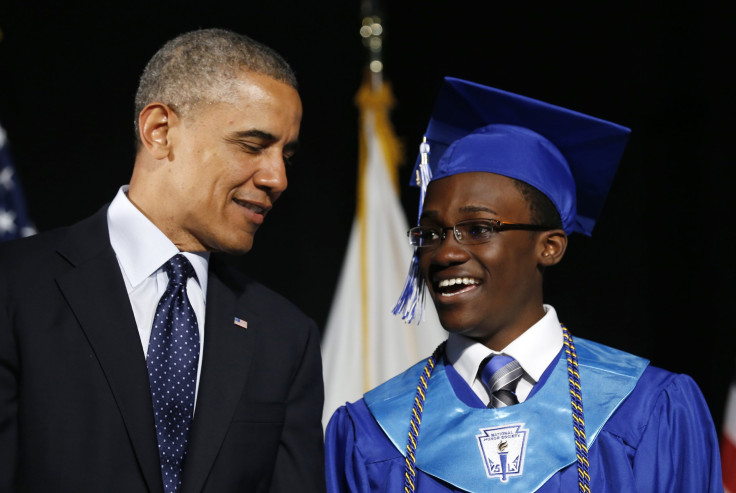Low-Paying College Majors: African-Americans' Fields Of Study Don't Earn Much Money, Report Finds

Racism in higher education has been the subject of protests at Ivy League and open-access colleges and universities in the U.S. over the last several months. But could racial discrimination and animosity toward students of color also impact which majors they choose?
A new study of colleges across the country found that African-American students are overrepresented in majors that lead to low-paying jobs, and they are concentrated in schools that are less prestigious and limited in major choices. This trend developed as more and more African-Americans went to college and graduated with degrees that they believed could help them reach the middle class, according to Georgetown University Center on Education and the Workforce in Washington, D.C., which published a report of its research Tuesday.
“The low-paying majors that African-Americans are concentrated in are of high social value but low economic value,” said report co-author Anthony P. Carnevale, who is director of the Georgetown Center. “Meaningful career planning before college can provide transparency about major choice and potentially prevent onerous debt and underemployment down the road,” he added.
Of 137 majors analyzed by researchers, only 6 percent of African-American students with a bachelor’s degree majored in pharmacy and pharmaceutical sciences and administration, which has the highest median annual earnings, at $84,000. Conversely, 20 percent of black students had chosen human services majors and community organization disciplines, which have the second-lowest median annual earnings ($39,000), according to the Center’s report.
Black students find the highest median earning of $66,206 with degrees in architecture and engineering, but only 5 percent of them have chosen those majors. In psychology and social work majors, where black students are 12 percent of those within the majors, they find the lowest median annual earnings, of $42,107. Pay in the aforementioned majors do not reflect the years of higher education needed to enter the profession, the Center’s report noted.
One explanation for black students being underrepresented in fast-growing, high-paying occupations — those that require science, technology, engineering and mathematics (STEM) degrees – could be pressure and hostility on campuses toward students of color who have chosen those disciplines. A separate study out of Vanderbilt University in Nashville, Tennessee, released last December found that STEM students of color reported a high rate of race-related stressors and little support from counselors and administration when they reported incidents that impact their ability to keep up and succeed in those majors.
© Copyright IBTimes 2024. All rights reserved.






















